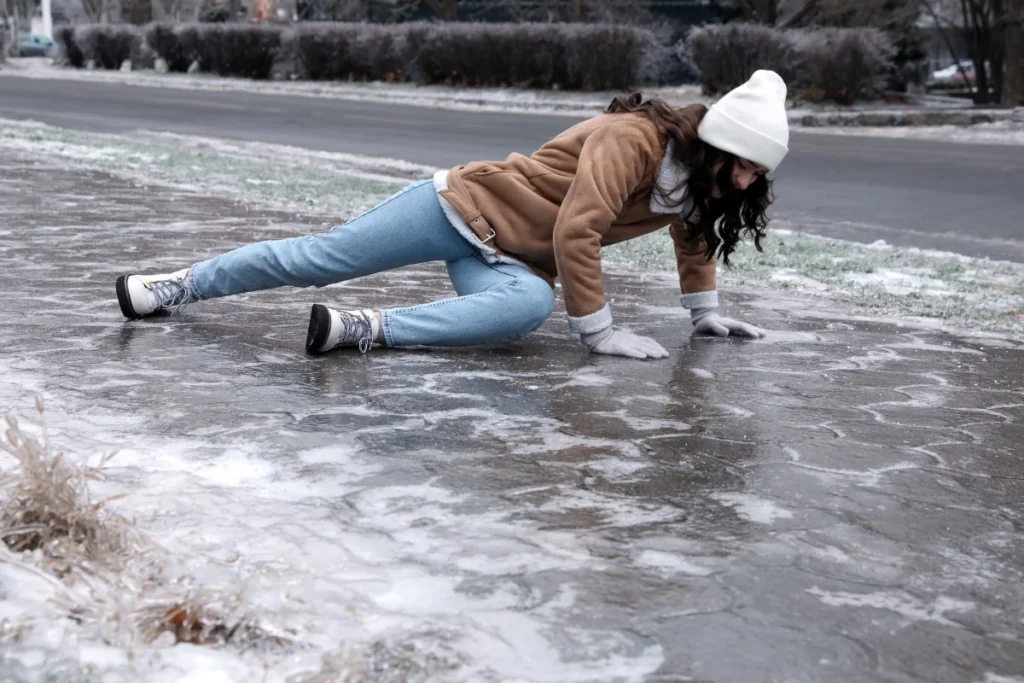The ground beneath your feet can betray you in an instant—especially around Lake Wylie, where uneven pathways, wet docks, and poorly maintained properties create hidden hazards. Slip and fall accidents happen unexpectedly, leaving victims with painful injuries, mounting medical bills, and unanswered questions about what went wrong.
Whether you’re a resident or a visitor, knowing the common causes of these accidents—and the immediate steps to take after a slip and fall—can mean the difference between a quick recovery and a prolonged struggle for justice.
From slick boat ramps to cluttered store aisles, danger often lurks where we least expect it. Understanding your rights and acting swiftly could protect your health, your finances, and your future. Let’s explore what makes Lake Wylie a hotspot for slip and fall incidents—and how you can fight back if negligence leaves you on the ground.
Common Causes of Slip and Fall Accidents in Lake Wylie
Lake Wylie’s scenic beauty attracts residents and visitors alike, but its natural and man-made environments can also create dangerous conditions. Some of the most frequent causes of slip and fall incidents in the area include:
- Wet or Slippery Surfaces – Boat ramps, docks, and pool decks around Lake Wylie are often slick due to water, algae, or spilled liquids. Restaurants and stores near the waterfront may also fail to promptly clean up spills, increasing the risk of falls.
- Uneven or Broken Walkways – Cracks in sidewalks, potholes in parking lots, and poorly maintained wooden boardwalks can easily trip pedestrians. Property owners have a duty to repair these hazards, but neglect often leads to accidents.
- Poor Lighting – Dimly lit staircases, parking lots, and pathways—especially in marinas or lakeside businesses—make it difficult to see obstacles, increasing the likelihood of a misstep.
- Weather-Related Hazards – Rain, ice, and fallen leaves can make outdoor surfaces treacherous. If businesses or homeowners fail to clear walkways or post warnings, they may be liable for resulting injuries.
- Cluttered or Obstructed Floors – Retail stores, restaurants, and private properties sometimes have loose cables, debris, or improperly stored equipment in walkways, creating tripping hazards.
Immediate Steps to Protect Your Health and Rights
If you’ve been injured in a slip and fall, acting quickly can help preserve evidence and strengthen any potential legal claim. Here’s what to do:
- Seek Medical Attention – Even if injuries seem minor, adrenaline can mask pain. A doctor’s evaluation ensures hidden issues (like concussions or soft tissue damage) are documented.
- Report the Incident – Notify the property owner, manager, or business staff immediately. Request a written incident report and keep a copy for your records.
- Document the Scene – Take photos of the hazardous condition (wet floors, uneven pavement, poor lighting) and your injuries. If there were witnesses, collect their contact information.
- Preserve Evidence – Keep the shoes and clothing you were wearing, as they may show the conditions that caused your fall. Avoid giving statements to insurance adjusters before consulting a lawyer.
- Consult a Personal Injury Attorney – If negligence contributed to your fall, a lawyer can help determine liability, negotiate with insurers, and ensure you receive fair compensation for medical bills, lost wages, and pain and suffering.
Why Legal Action May Be Necessary
Many slip and fall cases involve preventable hazards—meaning the accident could have been avoided if the property owner had taken reasonable care. Under South Carolina premises liability law, injured victims may be entitled to compensation if they can prove:
- The property owner knew (or should have known) about the dangerous condition.
- They failed to fix the hazard or warn visitors.
- The negligence directly caused the injury.
Insurance companies often downplay claims, arguing that the victim was careless. Having strong evidence and legal representation ensures your rights are protected.
Final Thoughts
In South Carolina, the statute of limitations for personal injury claims is typically three years, but evidence can disappear fast. Surveillance footage may be erased, witnesses’ memories can fade, and property owners might “fix” the hazard to avoid liability. The sooner you take action, the stronger your case will be.
Lake Wylie’s charm shouldn’t come at the cost of your safety. If negligence led to your injury, you deserve compensation for medical expenses, lost income, and pain and suffering. By understanding the risks and knowing how to respond, you can protect yourself—and hold responsible parties accountable.
If you or a loved one has been injured in a slip and fall, don’t wait to seek legal advice. The right steps today can secure your tomorrow.







